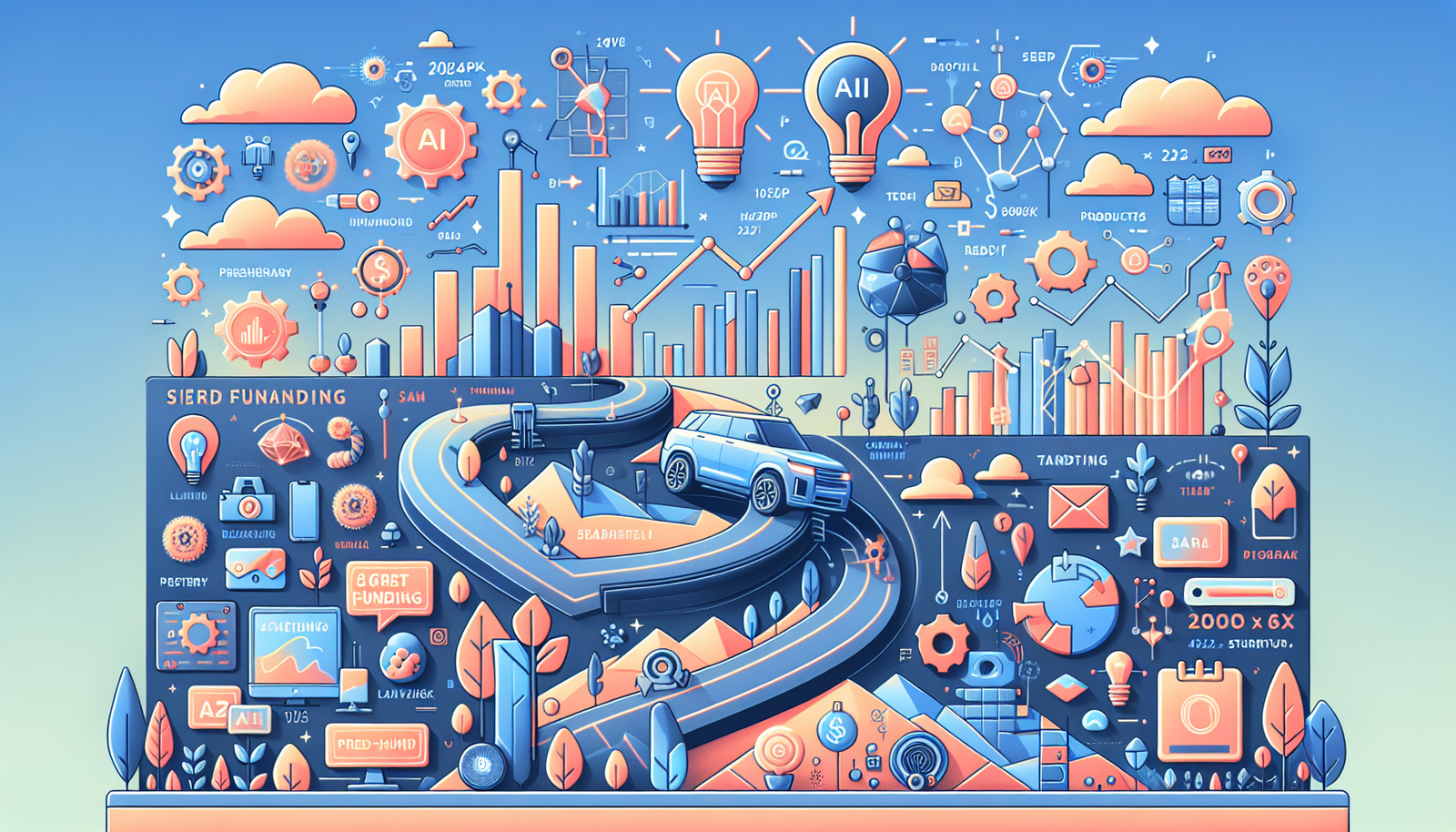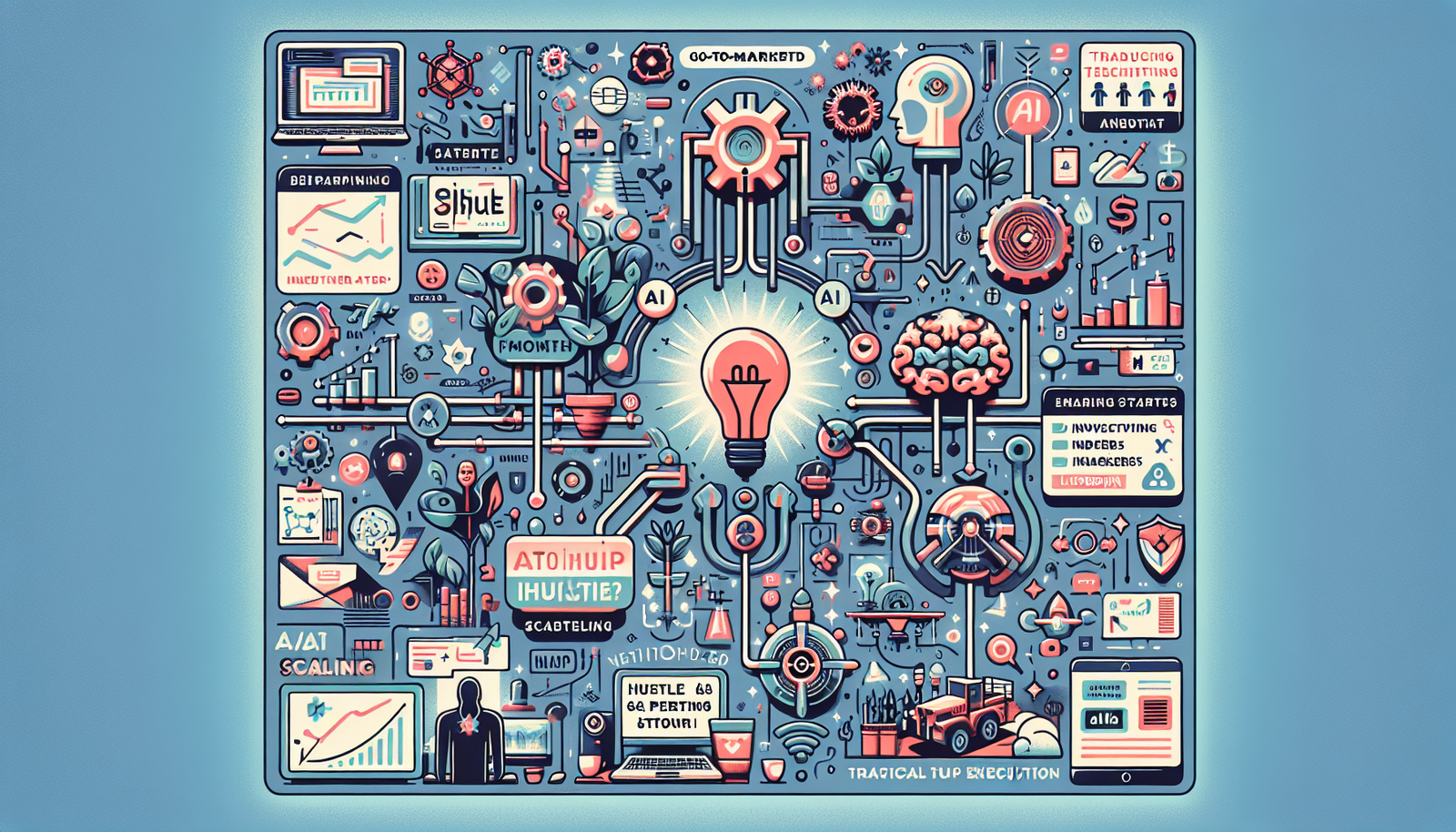Introduction: Why an AI-Driven GTM Strategy Is a Game-Changer for Startups
For startup founders, speed and focus are everything post-product development. A well-defined go-to-market (GTM) strategy means the difference between growth and stagnation—and AI is revolutionizing how early-stage companies break into the market. By integrating AI at each stage of the GTM funnel, startups can rapidly identify ideal customers, personalize outreach, and glean predictive insights to scale faster while keeping customer acquisition costs (CAC) low.
The role of AI in modern customer acquisition
According to McKinsey’s 2023 State of AI report, organizations using AI in marketing and sales saw a 20% boost in efficiency. Tools like AI copy generation, data enrichment, and real-time analytics have become foundational to startup playbooks.
How startups use AI to reduce CAC and scale faster
VC firms like Andreessen Horowitz and OpenView advise founders to treat AI not as an add-on but as an intrinsic layer across user acquisition, sales, and lifecycle marketing. By replacing manual processes with tools like Smartlead.ai, Clay, and MadKudu, founders reduce time-to-launch and target with precision.
Step 1: Define Your AI-Powered Ideal Customer Profile (ICP)
Rather than relying solely on founder intuition or basic demographics, AI-driven ICP development allows you to analyze enriched company and contact data to identify patterns of high-converting accounts.
Using Clearbit and ZoomInfo for enriched firmographics
Use tools like Clearbit or ZoomInfo to pull firmographic and technographic data like company size, industry, funding stage, and tool usage. These data points can be clustered using AI to identify common traits among top customers.
Training AI prompts to surface high-fit accounts
Upload sample customer data into ChatGPT or Claude to generate insights or prompt frameworks such as: “Compare deal velocity based on industry and tech stack. Recommend three new verticals to pursue.”
Step 2: Automate Outreach and Lead Generation
Your AI GTM stack should automate the top-of-funnel pipeline.
Leveraging tools like Apollo, Clay, and Smartlead.ai
Clay integrates with LinkedIn and email systems to scrape leads and enrich them in real time. Apollo enables list-building and Smartlead.ai allows you to schedule and customize cold email flows at scale using GPT-generated messaging.
Creating AI-personalized outbound campaigns
Use AI to auto-generate personalized opening lines based on a lead’s recent blog post, LinkedIn activity, or founder interview. Campaigns with AI-personalized first lines have shown click-through increases of 2–3X in A/B tests.
Step 3: Optimize Website and Capture Intent in Real-Time
Use Mutiny or Instapage for AI-powered site optimization
AI tools can dynamically change your homepage headline based on visitor type (e.g., “Developer Tooling for Seed-Stage Startups” for dev-focused visitors). Mutiny enables this kind of personalization natively.
AI chatbots for lead routing and qualification
Add Drift or Intercom AI bots to your site. With lead scoring logic, the bot can direct enterprise leads to a human salesperson immediately and email others a lead magnet or demo link, optimizing your response path.
Step 4: Use Predictive Analytics to Refine Your Funnel
Lead scoring models with MadKudu or 6sense
These platforms apply AI to determine which leads have the highest buying intent. You can train your model on historical closed-won opportunities to predict future ones.
AI dashboards to prioritize actions and channels
Tools like People.ai or Tableau with Python integration can surface which campaigns or channels have the shortest sales cycle, allowing you to double down where ROI is highest.
Conclusion: AI Enables Faster Iteration and Scalable GTM Motions
Founders can test hypotheses faster
The feedback loop from campaign to revision is shortened with AI tools, allowing you to run multiple experiments (email sequences, headlines, channels) in parallel and let data dictate direction.
AI helps build repeatable, data-driven GTM systems
Startups that build AI into their GTM from day one embed a culture of testing, personalization, and automation that can scale with sales and marketing headcount.
FAQs: Launching an AI-Powered Go-to-Market Strategy
Focus Keyword: AI GTM strategy for startups






